
Strategic relationships and feedback can enhance specialty pharmacy operations, said Natalie Bedford, senior vice president of US pharmaceutical distribution services at McKesson.

Strategic relationships and feedback can enhance specialty pharmacy operations, said Natalie Bedford, senior vice president of US pharmaceutical distribution services at McKesson.

Addressing the issues surrounding pharmacy benefit managers and the Inflation Reduction Act (IRA) would help to curb health care costs for patients, said John M. O'Brien, PharmD, MPH, president and CEO of the National Pharmaceutical Council.

Balancing technology and patient care can enhance communication and data collection, improving adherence and outcomes in specialty pharmacy, said Kathi Henson, MBA, of Orsini.

Mike Fazio, director of value-based care at Navista, Cardinal Health, discusses a trending topic at the 2025 Community Oncology Conference: optimizing oncology care with technology.
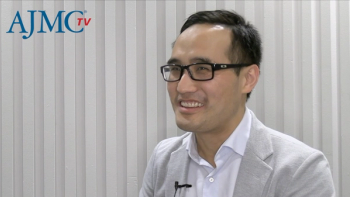
Mingyang Song, MBBS, ScD, discusses the link between ultraprocessed foods and cancer risk, emphasizing nutrition's role in prevention.

As the number of cell and gene therapies expands, it's increasingly important for long-term patient data, explained Fran Gregory, PharmD, MBA, vice president of emerging therapies at Cardinal Health.

New treatments for neovascular age-related macular degeneration (nAMD) and diabetic macular edema (DME) enhance patient care with gene therapies and new mechanisms of action on the horizon, explained Casey Koch, PharmD, from Select Health.
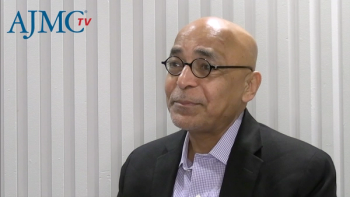
K. "Vish" Viswanath, PhD, explores the evolution of health misinformation, its sources, and the role of technology in shaping public understanding.

Evaluating the impact of the Inflation Reduction Act (IRA) will require real-time data and effective therapy metrics, explained H. John Beardsley, MBA, of CoverMyMeds; and Fauzea Hussain, MPH, of McKesson.

Raymond Osarogiagbon, MD, discusses the challenges of implementing lung cancer screening guidelines and the need for increased awareness and access.
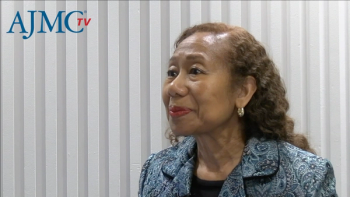
Kimlin Tam Ashing, PhD, of City of Hope National Medical Center, emphasizes the vital role of community engagement in cancer research, enhancing trust and communication between scientists and communities.
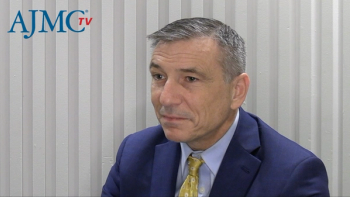
Zongertinib shows promise for treating HER2-mutant non–small cell lung cancer (NSCLC), with significant activity against brain metastases and low interstitial lung disease risk, explains John Heymach, MD, PhD.

Managed care will continue to evolve and employers and policy makers have a responsibility to understand how to best serve their patients, according to John Michael O'Brien, PharmD, MPH.
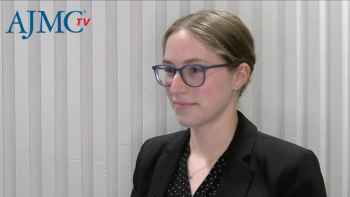
Artificial intelligence (AI) has the potential to deliver personalized nutrition; however, there is a need for professional oversight, emphasized Julia Logan, BS.

John Heymach, MD, PhD, The University of Texas MD Anderson Cancer Center, discusses the promising results of zongertinib for HER2-mutated non–small cell lung cancer, showcasing high response rates and improved patient quality of life.

Julia Logan, BS, discusses the vital role of nutrition in cancer care, highlighting how artificial intelligence can enhance dietary recommendations for patients.
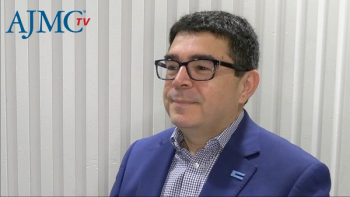
Luis Carvajal-Carmona, PhD, stresses the importance of global collaboration in cancer research to enhance understanding and treatment across diverse populations.

Ravindra Uppaluri, MD, PhD, lead investigator of the phase 3 KEYNOTE-689 trial (NCT03765918), highlights the need for a multidisciplinary approach to translate the study's findings into real-world care for patients with resectable head and neck cancer.

Ravindra Uppaluri, MD, PhD, lead investigator of the phase 3 KEYNOTE-689 trial (NCT03765918), highlights the potential of pembrolizumab (Keytruda; Merck) to improve outcomes following head and neck cancer treatment.

Andrew Kuykendall, MD, is an investigator on the phase 3 VERIFY trial (NCT05210790), findings from which demonstrate the safety, reliability, and effectiveness of rusfertide to treat polycythemia vera.

John Michael O'Brien, PharmD, MPH, discussed the changes in managed care over the past 30 years to commemorate the 30th anniversary of The American Journal of Managed Care®.

When it comes to treating multiple myeloma (MM), Ajai Chari, MD, argued that more is not always better. More intense treatment regimens, or those with more drugs, don't necessarily guarantee better outcomes.

Richard J. Nowak, MD, MS, Yale School of Medicine, explains what some early myasthenia gravis symptoms are and their impact on research efforts.
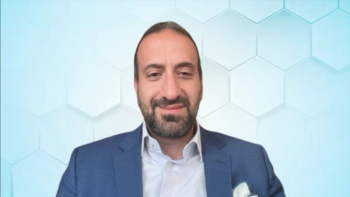
The future of treating metabolic dysfunction–associated steatohepatitis (MASH) looks brighter than ever, says Naim Alkhouri, MD, as data emerges on newly developed interventions.

Christine Funke, MD, discusses how the treatment of glaucoma has evolved in her decade of experience.

"Value" in oncology should measure far more than clinical outcomes, stated Andrew Chapman, DO, as he argued how rethinking "value" could not only enhance patient care but also drive down costs.

Program chairs Lillian L. Siu, MD, FAACR, and Matthew G. Vander Heiden, MD, PhD, highlight the cross-disciplinary approach to cancer research and innovation being taken at this year's American Association for Cancer Research (AACR) Annual Meeting.

Jaime Almandoz, MD, MBA, of UT Southwestern Medical Center, speaks on results of a study that investigated tirzepatide uptake trends in commercial claims data.

Although immunotherapies and biomarker-driven interventions have transformed lung cancer outcomes, Martin Edelman, MD, Fox Chase Cancer Center, highlighted the present challenge hindering clinicians' abilities to anticipate patients' treatment responses.

Benjamin K. Chen, MD, PhD, discussed the next steps after the results of his study in genetic tagging showed promise in targeting HIV cells.

259 Prospect Plains Rd, Bldg H
Cranbury, NJ 08512
© 2025 MJH Life Sciences®
All rights reserved.
